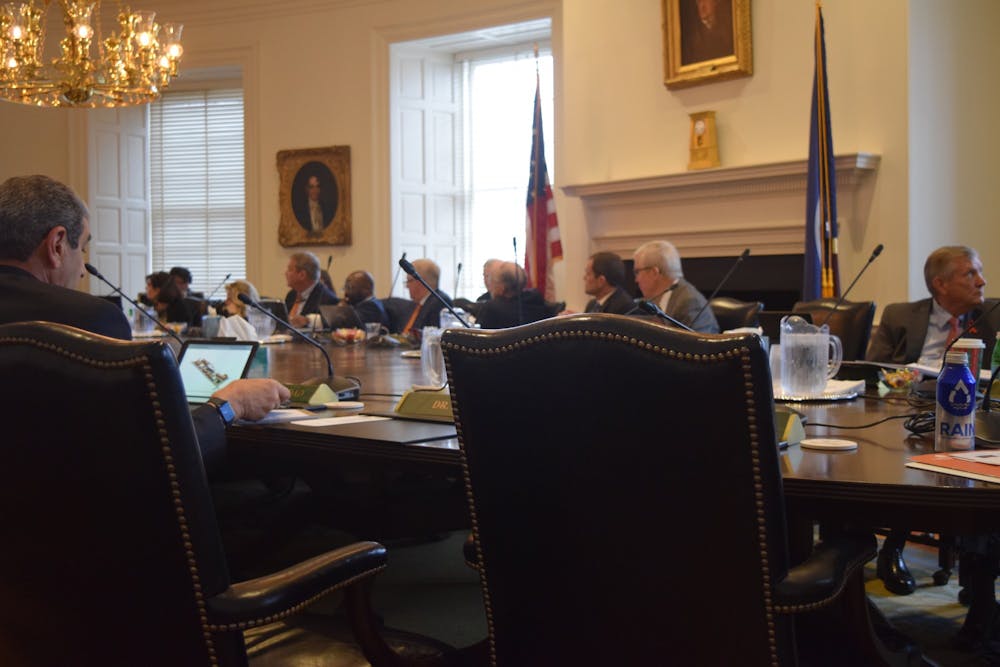The Board of Visitors’ Audit, Compliance and Risk Committee met Thursday from 1:45 p.m. to 2:30 p.m. to discuss the results of the past financial year’s audit and compliance goals for the upcoming year. Focuses of the meeting included changes to U.Va. Health protocol following the predicted end of the COVID-19 public health emergency as well as the lack of central authority for audits across divisions.
The secretary for the Department of Health and Human Services declared a public health emergency in January 2020 due to the COVID-19 pandemic and will likely end the public health emergency in late 2022. In preparation for this event, the University will evaluate changes to requirements that were waived during the public health emergency, such as modifications within Medicare and Medicaid programs in response to COVID-19. Telehealth availability will revert to original restrictions, another focus of the Committee’s compliance risk evaluation.
Committee Chair Thomas DePasquale began the meeting by introducing Vice President for Finance Melody Bianchetto, who said she remains impressed by the University's growth.
“Preliminarily, we can tell you that the University remains in a strong financial position,” Bianchetto said.
According to Bianchetto, the upcoming financial statements reflect a net position of nearly 12.6 billion. The endowment — a fund set aside for academic purposes such as recruitment, scholarships and library acquisitions — now sits at $7 billion, while other long-term assets are about 3.7 billion. As of the 2020-21 fiscal year, the endowment sat at 14.5 billion.
Five audit projects were completed in the second quarter of the 2022 fiscal year, with 13 currently in progress. There were no indications of fraudulent transactions or illegal acts.
Bianchetto also introduced David Rasnic, director of higher education programs for the Virginia Auditor of Public Accounts, to present the audit department report.
Rasnic said a lack of communication between divisions in the audit process — particularly between the academic division and the medical school — is cause for concern and recommended the implementation of a centralized authority.
Additionally, the University recently acquired Community Health — a partnership with 470 million dollars in assets — and is currently utilizing a third-party auditory for this entity, which introduces another degree of separation into the overall audit.
“We feel that by allocating additional resources to research new accounting issues and complex transactions, and properly be able to coordinate and plan for new standards that come out of large transactions like Community Health in the future, by having a central authority, we will have a timely and accurate process,” Rasnic said.
An audit of COVID-19-related relief funds found that HEERF student financial grants followed the U.S. Department of Education’s guidelines Additionally, a review of the SIS operating system — the interface used for all student information such as grades, class enrollment and exam times — assessed the technology to be effective in its interface and handling of grade changes and notifications.
Following the audit report, the Committee entered closed session to consider the performance of administrative personnel and consult with legal representatives concerning an undisclosed compliance matter within U.Va, Health.





